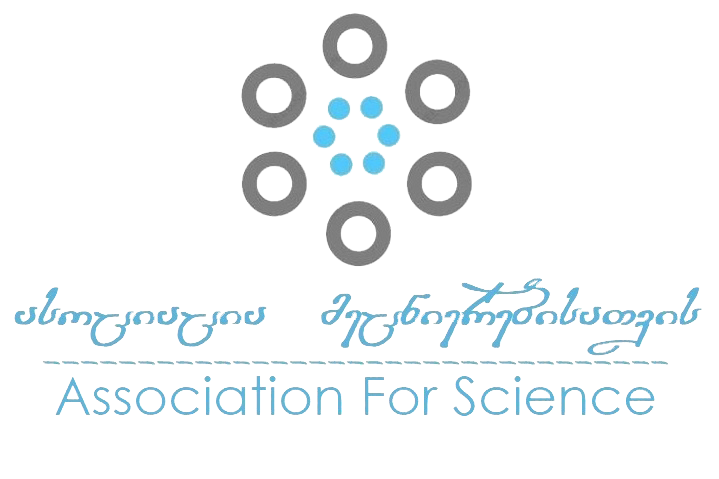Application of Process-oriented Methods and Approaches to Creating a Safe Environment in Higher Education Institutions
DOI:
https://doi.org/10.52340/sou.2023.19.57Keywords:
higher education, process, methods and approaches, safe environment, attitudes, skills, critical thinking, student achievemeAbstract
Teaching is a complex process, though the effective results can be achieved by properly planned lraining process. Both teachers and persons responsible for teachers’ education can take some innovative actions in this direction. They can create equal development conditions for all participants of the educational process including both process-oriented methods and approaches and the promotion of aspects such as: modeling democratic attitudes and behavior; democratic processes in the learning environment, cooperative learning; Project-based learning and service learning.These methods do not require either external institutional intervention or support. However, the most important is to organize learning process properly. Both teachers and prospective teachers must be focused on the structure of the learning process, which they are going to lead or offer to students. The main thing is to be concentrated on the effectiveness, efficiency and the observance of the principle of impartiality.At the same time, goals, content, learning material, joint planning of assessment and program evaluation, the use of holistic approaches between teaching and assessment procedures and their agreement with the participants of the learning process, change the traditional relationships and create new ones, expanding functions, which takes the process to a completely different height. This is an active cooperation and constructivism, which we will achieve through the right relationship between the teacher and the student rather than through the implementation of only curricula. Activation of humanistic components is the main condition of a safe learning environment.Practical research determines the effectiveness of the mentioned practice, students' competencies and the quality of their training process. The above mentioned research also shows us the willingness of teachers whether they are ready to put all of their values into practice or not. It shows us the way how to get to know themselves better as well as get more information about both their own professional and personal identity and their individual and professional goals. For this purpose, in 2019, in Sukhumi State University, we conducted a study determining the level of tolerance. Fifty students participated in the study hold on the basis of a random principle.The specific aim and task of the research was: 1) to promote both formation of the space identifying tolerance level on the process and creation of a safe environment. During the research process we were especially focused on that environment, where future teachers were trained. 2) To make practical recommendations in order to obtain effective results in the above mentioned direction (to promote both formation of the space identifying tolerance level on the process and creation of a safe environment). In the research process, we used questionnaire, conversation and observation.Research has shown us, that focusing on modeling democratic attitudes and behavior in daily learning practices will significantly increase the factor of safety. In this direction, we have made several recommendations, which also have a positive effect on the effectiveness of both teaching and learning processes. Such studies, including appropriate structural changes and the use of process-oriented approaches and methods, creating safe learning environments, enable us to understand critically the attitudes, skills and knowledge of both teachers and students, as well as improve student achievement and have a positive impact on their relationships, facilitating both critical evaluation of values and the achievement of effective results.
References
ანდღულაძე, მოსიაშვილი, კეჭაყმაძე (2012) ნათია ანდღულაძე, თამარ მოსიაშვილი, ვანო კეჭაყმაძე. უსაფრთხო სკოლის პოლიტიკა საქართველოში. წინაპირობა, შედეგები და დამოკიდებულებები. წიგნში: ბავშვზე ორიენტირებული სკოლის გზამკვლევი. სამოქალაქო განვითარების ინსტიტუტი, თბილისი, 2012. გვ.117-156. ხელმისაწვდომია https://dspace.nplg.gov.ge/bit-stream/1234/4350/1Usafrtxo_Skolis_Gzamkvlevi.pdf
ბერეკაშვილი, მშვიდობაძე და სხვები (2005) ნანა ბერეკაშვილი, რუსიკო მშვიდობაძე, მანანა ჯავახიშვილი, თეა ლობჟანიძე, შორენა ლორთქიფანიძე, ირინა სულხანიშვილი. შ. ლორთქიფანიძე, რედ. 2005: ვქმნით ტოლერანტულ გარემოს. ტოლერანტობის სახელმძღვანელო მასწავლებლებისათვის. კონფლიქტებისა და მოლაპარაკებების საერთაშორისო ცენტრი ICCN. წიგნის რედაქტორი შ. ლორთქიფანიძე, ფონდი „ღია საზოგადოება-საქართველო“ (2005). ხელმისაწვდომია: http://w-ww.iccn.ge/files/vqmnit_tolerantul-garemos_2005_geo_full.pdf
გორგოძე, ჯანაშია, ანდღულაძე,მოსიაშვილი, კეჭაყმაძე (2012) უსაფრთხო სკოლის პოლიტიკა საქართველოში. წინაპირობა, შედეგები და დამოკიდებულებები. ბავშვზე ორიენტირებული სკოლის გზამკვლევი. ავტორები: გორგოძე სოფიო, ჯანაშია სიმონ, ანდღულაძე ნათია, მოსიაშვილი თამარ, კეჭაყმაძე ვანო. სამოქალაქო განვითარების ინსტიტუტი, თბილისი;
ნაცვლიშვილი, სილაგაძე, (2018) ნათია ნაცვლიშვილი, თეონა სილაგაძე (რედაქტორები), დემოკატიული კულტურის კომპეტენციები და პედაგოგიკა. დემოკრატიული კულტურის კომპეტენციების სარეკომენდაციო ჩარჩო. ტ. 3. ევროპის საბჭო. მასწავლებელთა პროფესიული განვითარების ეროვნული ცენტრი, თბილისი;
Declaration of Principles on Tolerance (1995) Declaration of Principles on Tolerance Proclaimed and signed by the Member States of UNESCO on 16 November; ხელმისაწვდომია https://www.oas.or-g/dil/1995%20Declaration%20of%20Princip-les%20on%20Tolerance%20UNESCO.pdf ბოლო ნახვა, 2021 წლის 12 მაისი.
Gerhard Neuner, Contributors (2012) Gerhard Neuner, Contributors, 2012: Intercultural competence for all.Preparation for living in a heterogeneous world. Gerhard Neuner ,The dimensions of intercultural education. Council of Europe Pestalozzi Series, No. 2. ხელმისაწვდომია https:/rm.coe.int/intercultural-competence-for-all/16808ce20c
Huber (2012) Intercultural competence for all Preparation for living in a heterogeneous world, Series editor Josef Huber, Edited by Josef Huber, Contributors Francesca Brotto, Josef Huber, Katarzyna Karwacka-Vögele, Gerhard Neuner, Roberto Ruffino Rüdiger Teutsch. Council of Europe Pestalozzi Series, No. 2. Council of Europe Publishing F-67075 Strasbourg Cedex, ხელმისაწვდომია: -https://rm.coe.int/intercultural-competence-for-all/16808ce20c
Безотечество (2014( Л. М. Безотечество. ФОРМИРОВАНИЕ ТОЛЕРА-НТНОСТИ СТУДЕНТОВ – БУДУЩИХ ПЕДАГОГОВ В ОБРАЗО-ВАТЕЛЬНОМ ПРОЦЕССЕ ВУЗА: методические рекомендации / Л. М. Безотечество. – Красноярск, 2014. – 43 с. ხელმისაწვდომია:http://tolerance.sfu-kras.ru/files/metodicheskie_rekomendacii_1.pdf



